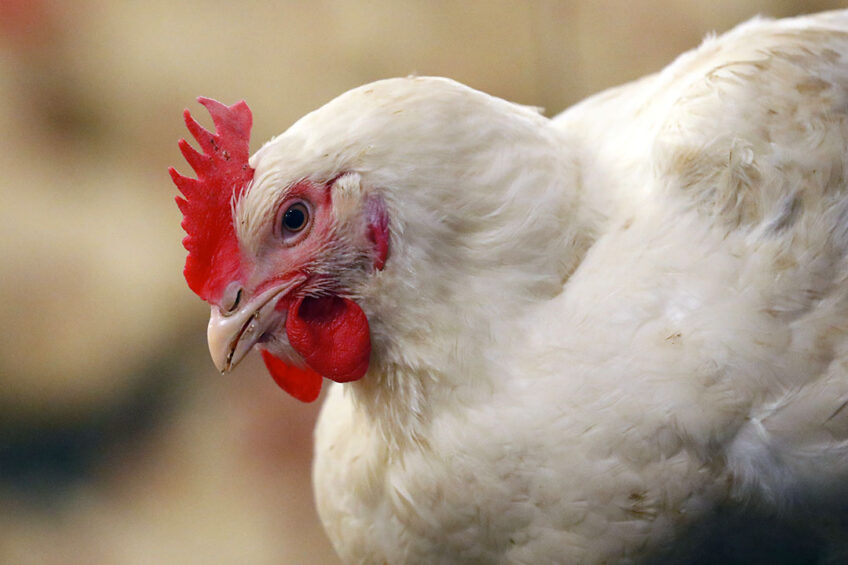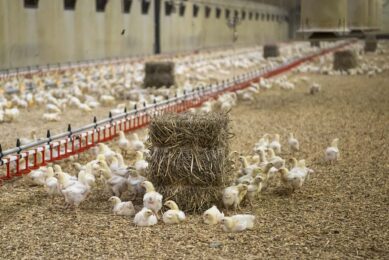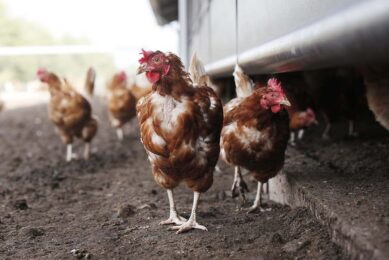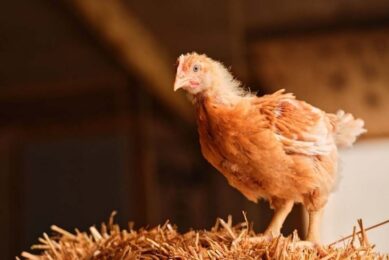Beak trimming – the way ahead for the UK

The UK is moving towards a ban on beak trimming in the next few years. The industry cannot continue pushing the subject into the long grass and will have to deal with it now.
Andrew Joret, chairman of the British Egg Industry Council and the Laying Hen Welfare Forum, said if the industry wouldn’t act, legislation would be forced upon the sector. He provided a history of the issues, which was first raised in parliament by the former Labour Animal Welfare minister, Elliot Morley, in 2002.
While infra-red beak trimming (IRBT) of day-old chicks was recognised by the Farm Animal Welfare Comittee as not causing any pain to birds, successive governments have always indicated they were keen to introduce a ban.
Funding on non beak-trimmed flocks
Government did introduce funded research and development on non-beak trimmed flocks, carried out by University of Bristol on up to 20 barn, free-range and organic holdings, but because of the lack of funds for producers, there were no commercial flocks willing to take part.
The British Egg Industry Council underwrote 3 commercial large-scale flocks. “Of those 3 flocks, 1 was an absolute disaster, and that had to be emergency beak-trimmed at about 27 weeks, and they lost 40% of the flock – 20% by cannibalism and 20% during the beak trimming process because the people who did it felt the birds wouldn’t survive. One flock was all right with a bit of extra attention and the third flock was a problem flock and probably should have been emergency beak-trimmed but wasn’t.”
Ongoing debate
The results and the ongoing debate led to the establishment of the Laying Hen Welfare Forum and the industry was asked by ministers to report on progress towards non-beak trimmed birds. The industry is continuing to fund a research officer to disseminate further research results.
Transitioning to non beak-tipped flocks
Attention to detail, positioning of trees and the use of enrichments all play a key role in keeping non beak-tipped birds happy, according to UK producers. Read more…
Joret said about 7% of Lion hens are not beak-trimmed (mainly organic and speciality free-range), but added that bans are already in place either through legislation or code of practice in Germany, Austria, Denmark, Sweden, Finland, the Netherlands, Switzerland and Norway.
He quoted the current English Code of practice for the welfare for laying hens and pullets, which says: “Once all management strategies are in place and good feather cover is achieved throughout lay for 2 consecutive flocks, stopping beak trimming in future flocks should be actively considered, in consultation with a veterinary surgeon and other appropriately qualified technical advisors.”
Preventing excessive feather pecking behaviour
Beak trimming has been the go-to solution to prevent feather pecking in chickens and turkeys. However, since 2018, this is no longer allowed in the Netherlands. Scientists are looking into improving chicken welfare by finding alternative measures to combat injurious pecking behaviour. Read more…
If legislation comes into force in England, it will basically affect Wales, Northern Ireland, Scotland and the Republic of Ireland as the 3 pullet plans are all based in England.
‘Hugely detrimental to the welfare of laying hens’
Robert Gooch, CEO of the British Free Range Egg Producers Association, said his organisation had been opposed to the government banning IRBT for many years, saying it would have been hugely detrimental to the welfare of laying hens. However, he said it did not mean that the Association’s members would keep saying no to a ban and do nothing else to help government, welfare organisations and customers.
The organic sector and some well-known brands were now paying a premium for eggs from non-beak tipped hens.
“7% of the Lion-registered birds were non beak-tipped and as free-range continues to grow as the UK’s dominant egg production system, we should also have an ambition to grow that proportion of non-beak tipped hens.”
The organic sector and some well-known brands were now paying a premium for eggs from non-beak tipped hens. The government should support those who voluntarily went down the non beak-tipped route as flocks gradually moved down the voluntary route, he added. The British Free Range Egg Producers Association has always opposed but government wants to transition away from this practice.
Join 31,000+ subscribers
Subscribe to our newsletter to stay updated about all the need-to-know content in the poultry sector, three times a week. Beheer
Beheer








 WP Admin
WP Admin  Bewerk bericht
Bewerk bericht